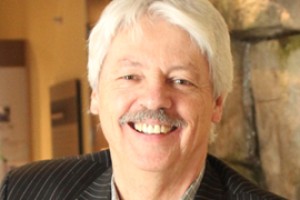Controversial scrapping of this fall’s vote draws ire in legislature
NEWS Jul 30, 2018 by Karena Walter The St. Catharines Standard
On the same day as a heated debate in the legislature about Doug Ford's 11th-hour changes to Ontario's municipal election, St. Catharines regional Coun. Bruce Timms is calling for a referendum on having an elected chair.
Timms said he wants a referendum question on the Oct. 22 ballot asking the public if they want Niagara's regional chair to be chosen by an election-at-large in 2022.
To do that, he'll need the support of the premier, because the deadline for referendum questions on the ballot has passed.
"A simple referendum, regional chair at large yes or no, is a pretty simple way to ask the people," Timms said.
Niagara's chair since 1970 has been chosen by elected members of regional council, not by the public at large. In 2013, council adopted a motion that the head of council be appointed by members of council from the members of council.
That was to change in 2018 due to changes to the Municipal Elections Act in 2016, made by the Kathleen Wynne Liberal government, which mandated an election-at-large for regional chairs.
But on Friday morning, the day nominations closed for the upcoming election, the Ford government announced it would be bringing in legislation to cancel the chair races in Niagara, Peel, York and Muskoka.
Four candidates had signed up to run for Niagara regional chair prior to Friday with a fifth signing up that day. Candidates had mere hours to gather 25 signatures of support to run for other positions before the 2 p.m. close.
Pelham Mayor Dave Augustyn and current Chair Alan Caslin removed their names and signed up for regional councillor races, while former Welland mayor Damian Goulbourne, Niagara Falls resident John (Ringo) Beam and Niagara-on-the-Lake resident Aaron Scott Michael Stack did not change their positions.
Timms and Augustyn brought a motion to the corporate services committee in September 2015 asking that the regional chair move to an election-at-large across the region. The vote lost 13 to 6.
"Council has said no twice. Wynne said yes. Ford said no. It's time to ask the people," Timms said.
Timms said it's an opportune time because the regional ballot set up for the chair's race is ready to go and the municipal clerks just have to change the question.
Goulbourne said getting a sense of direction from the public would be useful information for the next council, which he said will have to get into a governance conversation with the government of Ontario.
"Like all citizens of Niagara, we want to actively participate in the governance that exists within our community, so whether it be voting on a regional chair or voting on a referendum, it gives power back to the people and allows the people to have a voice, so I'm a strong fan of that."
Augustyn said he's supportive of putting the chair issue on the ballot, but it may be too late in the process.
"It would be important to gauge what the public thinks about it," he said. "I think it's an important matter. It's something that will bind or help bind the entire Niagara Peninsula together."
He said an election-at-large would mean having candidates talk about their vision for the Niagara Peninsula, work across the entire region to talk to people about it and gain cross-community support in order to do that."
Niagara Region spokesman Daryl Barnhart said the deadline to submit a notice for a referendum was Feb. 20 under the Municipal Elections Act. A public meeting had to be held prior to passing a bylaw to put question on the ballot and the bylaw had to be passed by March 1.
Timms said he thinks the premier has the power to allow a referendum question despite the deadlines.
"We're too late to do it under the current legislation, but if he can do what he did on Friday, he can do this," he said.
In the legislature at Queen's Park Monday, St. Catharines MPP Jennie Stevens slammed the government for lack of public consultation on the removal of the chair's election, saying it was forcing changes on Niagara with "no word from the people."
"We have seen this government rail on and on and on about the importance of public consultation but they only seem to care when it suits their far-right extremist friends," Stevens said, referring to the government's scrapping of the sex-education curriculum for more public consultation.
"If public consultation is such an important part of this political process for the Conservatives, why, why, why, why did they think it was appropriate to skip it when removing democratic rights from the people of Niagara?"
Municipal Affairs Minister Steve Clark responded that he doesn't believe having more politicians is the way to go.
"We heard clearly during the campaign to respect taxpayers dollars, to bring back accountability, and transparency and trust in government. We're moving forward to reduce the size of government, to make it more streamlined, to be able to make decisions faster for the priorities of their constituents. I'm not surprised the new democrats are against having efficient government."
Having an elected regional chair in Niagara would add no politicians.

